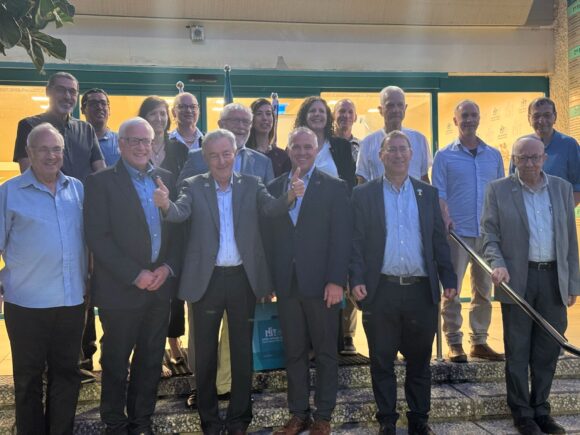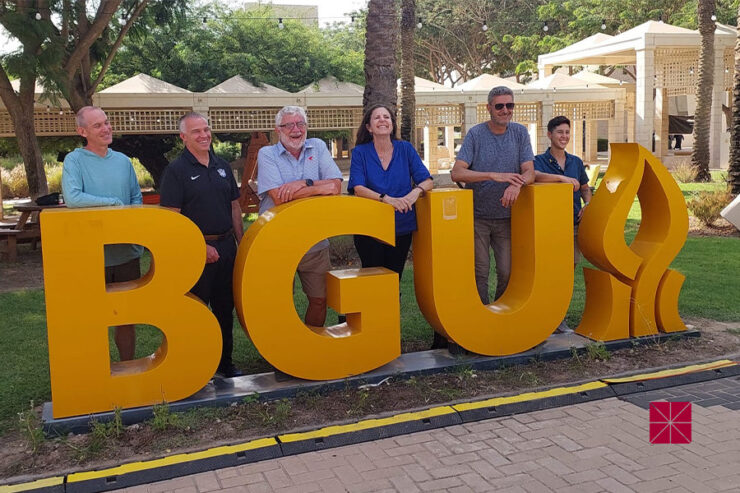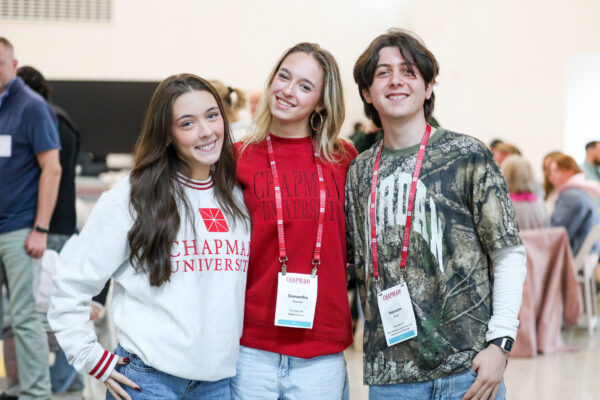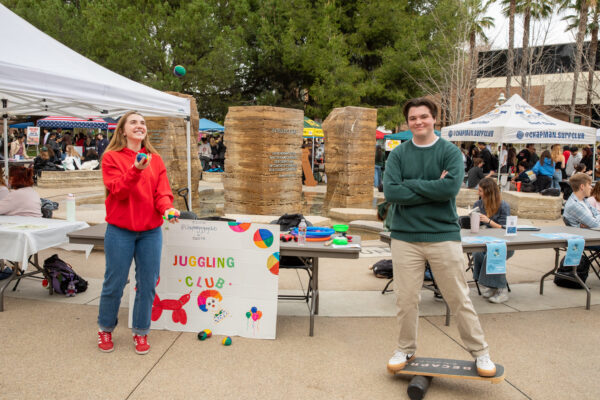Chapman University President Emeritus Daniele C. Struppa recently returned from a weeklong visit to Israel, where he joined a delegation of university leaders from across the western United States. The group, which included presidents and senior administrators from institutions such as Brigham Young University, the University of La Verne, Caltech, and the University of San Diego, spent six days visiting universities and meeting with academic officials.
For Struppa, the trip was both professional and personal. As a mathematician, he has traveled to Israel many times over the years to lecture at universities including Tel Aviv University, Bar-Ilan University, Hebrew University, Haifa University, and the Holon Institute of Technology. He also has a deep connection with his faith and enjoys visiting sites of religious significance.
“You need to be in a place to talk about a place,” Struppa said before departing. “The purpose of the trip was to see the real Israel, not just what you see on television, by experiencing daily life and talking to people about their experiences.”

Holon Institute of Technology.
During the visit, Struppa and the delegation met with the presidents and senior officials of Israeli universities, toured academic facilities, and discussed opportunities for international collaboration. Struppa said these exchanges reaffirmed the importance of building strong academic partnerships.
He said the most striking part of the trip was seeing how many Israeli professors and researchers feel cut off from the international academic community, as some universities and journals refuse to collaborate with them or publish their work because of boycott movements.
“The key observation was how isolated my colleagues in various universities feel because of the boycott system,” he said. “They are particularly abandoned by the Europeans. It’s a tremendous form of discrimination against our colleagues there, and they feel this very strongly.”
Struppa emphasized that such boycotts punish individuals who are not responsible for political decisions. “It would be like punishing you because we don’t agree with our government,” he explained. “That’s ridiculous. And that’s what’s happening there.”
He said his Israeli colleagues were so touched that the delegation was there, that one of them “had tears in his eyes” that they were visiting.
Looking ahead, Struppa said Chapman and other universities can play a meaningful role in supporting their colleagues in Israel. “The most important thing is to keep our collaboration active and try to remove that sense of loneliness and abandonment that I feel they have,” he said. “We can help by engaging in joint projects, inviting them here, visiting them there, and increasing student exchanges.”
He noted that expanding opportunities for students to study in Israel, especially those who do not have ties to the region, would strengthen mutual understanding. “People need to be there, to walk through Tel Aviv, Jerusalem, and Haifa, and see firsthand a very vibrant democracy with people disagreeing on everything,” Struppa said.
Reflecting on the visit, Struppa noted that the delegation came away with a deeper understanding of the complexity of Israeli society and the role higher education can play in fostering dialogue and connection. “That’s what we need to do, we need to keep our collaboration as open as possible.”




